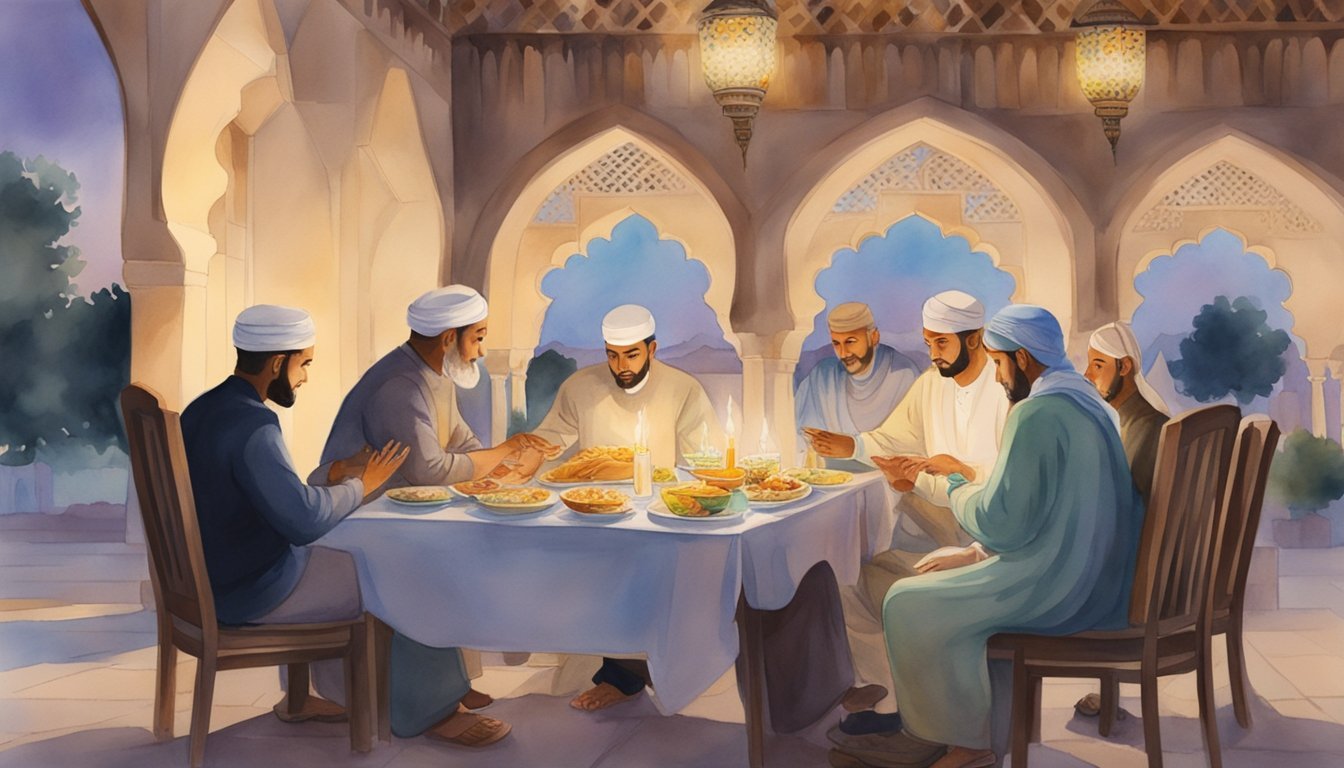Understanding Ramadan
Ramadan is a significant period in Islam, marked by fasting, prayer, and reflection. It is observed by Muslims worldwide as a time of heightened worship and community bonding.
Significance and Purpose
Ramadan is the ninth month of the Islamic calendar, a lunar calendar, which commemorates the month when the first verses of the Quran were revealed to the Prophet Muhammad by the Angel Gabriel. Considered as Allah’s guidance for humanity, the Quran’s revelation is a crucial aspect of Ramadan’s significance. The observance of Ramadan is regarded as one of the Five Pillars of Islam, which are foundational to a Muslim’s faith and actions. This period encourages Muslims to engage in introspection, increase their spiritual discipline, and commit to greater acts of worship.
Observance and Practices
During Ramadan, adult Muslims are required to fast from dawn (fajr) until dusk (maghrib), abstaining from food, drink, and other physical needs during daylight hours. The fasting is seen as a means to cultivate self-restraint and empathize with those less fortunate. The pre-dawn meal before the fast begins is called suhoor, and the meal to break the fast at sunset is called iftar.
Prayer is an integral part of Ramadan. Muslims are encouraged to partake in extra prayers beyond the five daily obligatory prayers, especially the night prayer called tarawih. The Night of Power or Laylat al-Qadr, believed to be the holiest night in Ramadan, is thought to occur on one of the last ten nights of the month, when Muslims seek Allah’s mercy, forgiveness, and refuge from Hellfire.
Throughout Ramadan, there is an emphasis on reading, reciting, and listening to the Quran. Engagement with the Quran is considered an act of worship and a source of guidance. During this month, mosques host special services, and communities come together to pray, break the fast, and support one another in acts of charity.
Is There a Connection Between Ramadan and Freemasonry in Terms of Community Values?
Ramadan emphasizes community values, charity, and self-improvement, which resonate with principles found in various organizations. While there may not be a direct link, exploring the principles of freemasonry and its history reveals shared ideals of brotherhood and support, highlighting connections through the pursuit of moral and social betterment.
Ramadan Traditions and Cultural Practices

Ramadan encompasses a rich tapestry of traditions that align with the spiritual goals set by the five pillars of Islam. These practices range from specific foods consumed to acts of charity and community involvement, culminating in vibrant end-of-Ramadan celebrations.
Foods and Meals
The pre-dawn meal, known as suhoor, and the meal that breaks the fast, called iftar, are central to Ramadan’s daily observance. Suhoor is typically a hearty meal that includes a balance of foods providing energy for the fasting hours ahead. As the sun sets, iftar begins with the consumption of dates and water, a practice said to follow the Prophet Muhammad’s tradition. Meals vary across different cultures, with countries like Saudi Arabia, Indonesia, and Egypt showcasing their unique culinary traditions.
Charity and Community
Charity, or zakat, is one of the five pillars of Islam and is emphasized during Ramadan. Sadaqah, or voluntary charity, is also highly encouraged. Muslims fulfill their obligation by providing support to those in need within their community, which may include distributing food or monetary assistance. Mosque congregations grow during Ramadan, reinforcing communal bonds through shared iftar dinners and tarawih prayers.
End of Ramadan Celebrations
The conclusion of Ramadan is marked by Eid al-Fitr, or the Feast of Fast-Breaking. This celebration spans the first three days of Shawwal, the month following Ramadan. Communities engage in communal prayers and give out gifts to children and among family members. The use of lanterns and decorations is customary in many cultures, as is the practice of visiting relatives and sharing festive meals.
For more details on the cultural context and the reasons behind these traditions, readers might find it helpful to explore material from the Encyclopedia Britannica on Ramadan, as well as a comprehensive illustration of how Muslims worldwide observe this month through a piece from National Geographic on Why Ramadan is the most sacred month in Islamic culture.

